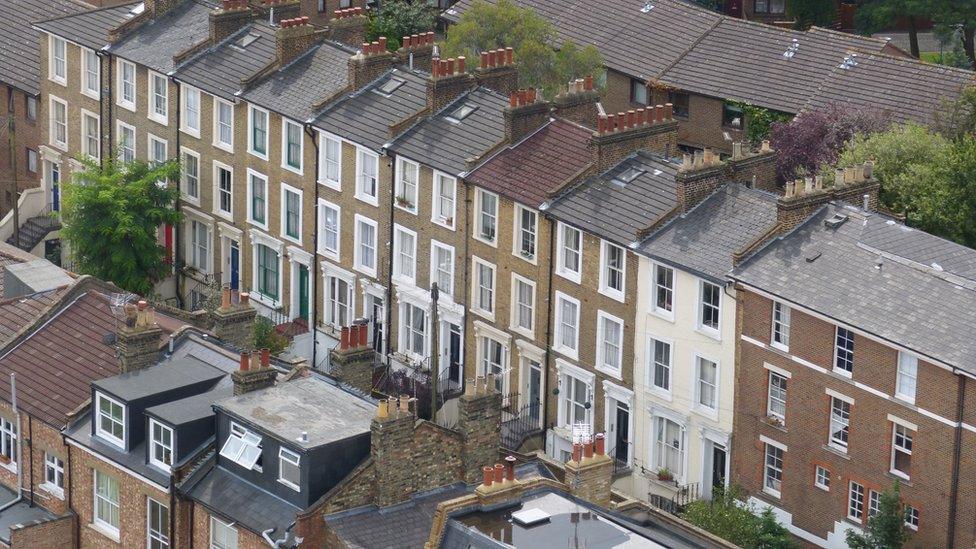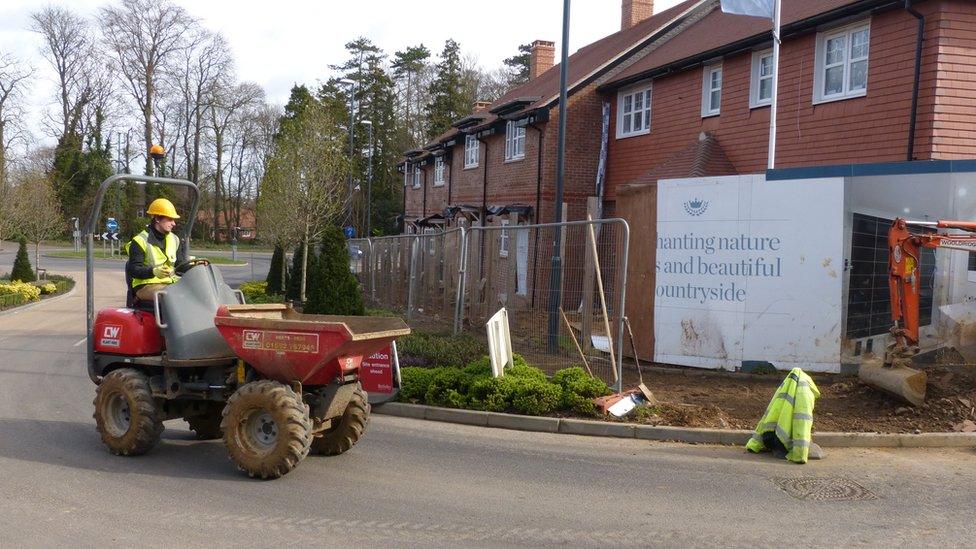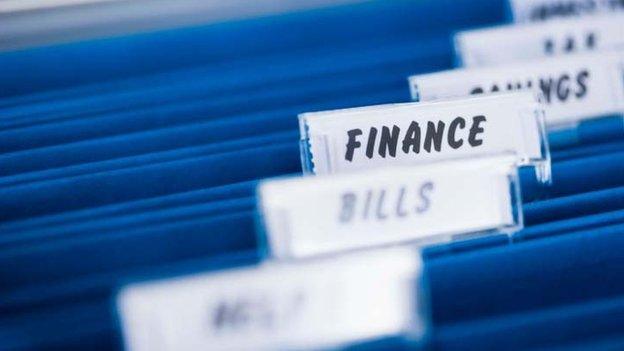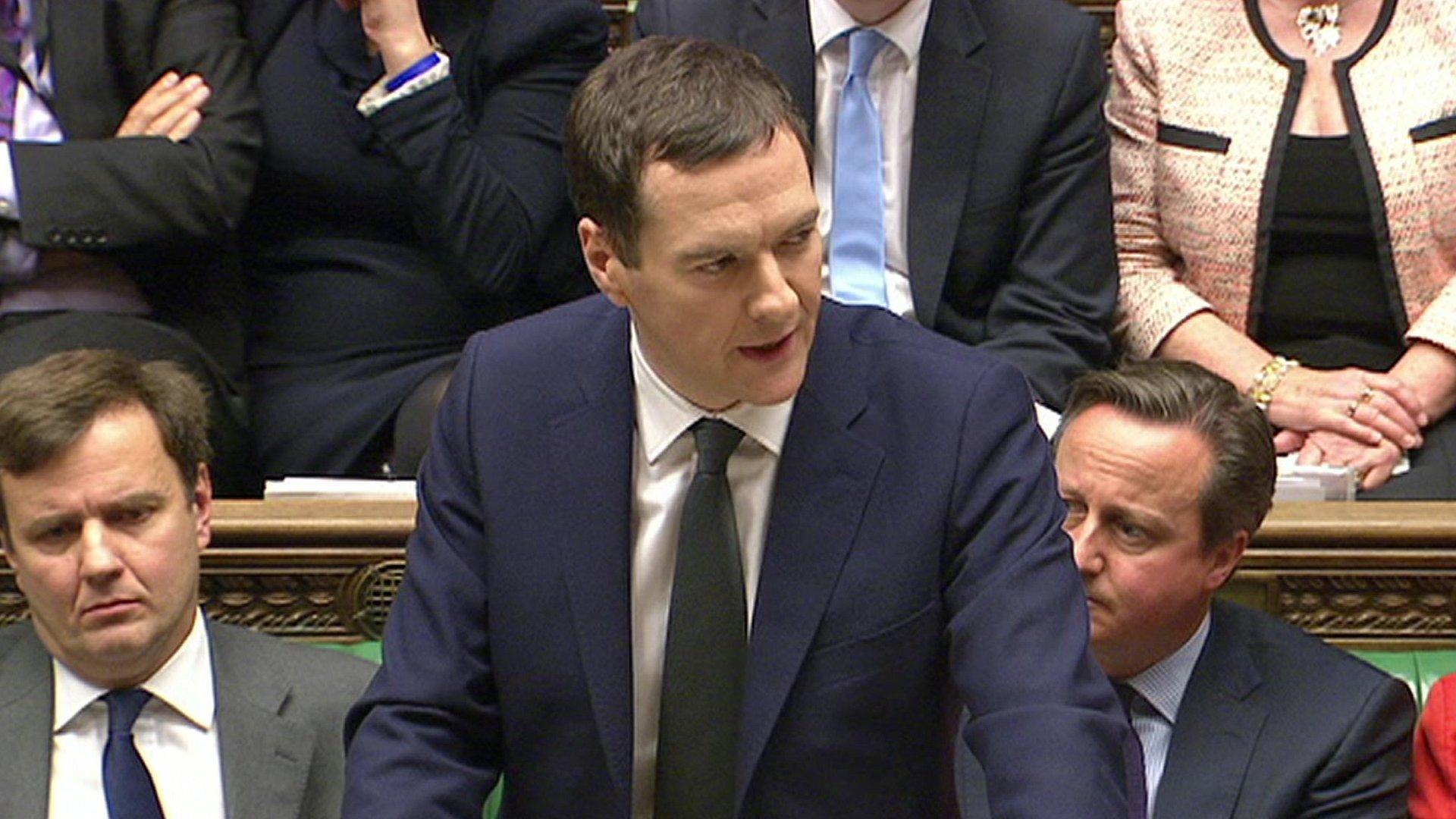Autumn Statement: Buy-to-let homes face higher stamp duty
- Published

Buy-to-let landlords and people buying second homes will soon have to pay more in stamp duty, the chancellor has announced.
From April 2016, those in England and Wales will have to pay a 3% surcharge on each stamp duty band.
George Osborne said the new surcharge would raise £1bn extra for the Treasury by 2021.
Landlords reacted angrily to the change, saying it would "choke off" investment in rented properties.
Other changes, external announced by the chancellor included an extended Help to Buy scheme in London, and more money for the Starter Homes programme.
'Choke off investment'
The stamp duty surcharge will lift each band by 3%. That means that for properties worth between £125,000 and £250,000, where the stamp duty is 2%, buy-to-let landlords will pay 5%.
For the average buy-to-let purchase of £184,000, that means they will pay an extra £5,520 from April 2016.
Commercial property investors, with more than 15 properties, are expected to be exempt from the new charges.
Buy-to-let landlords will also be hit by a change to Capital Gains Tax (CGT) rules.
From April 2019, they will have to pay any CGT due within 30 days of selling a property, rather than waiting till the end of the tax year, as at present.
Landlords are already due to get a lower rate of tax relief on mortgage payments.
In his summer Budget, the chancellor said that landlords would only receive the basic rate of tax relief - 20% - on mortgage payments, a change being phased in from 2017.
Responding to the latest changes, Richard Lambert, chief executive of the National Landlords Association said: "The chancellor's political intention is crystal clear; he wants to choke off future investment in private properties to rent.
"If it's the chancellor's intention to completely eradicate buy-to-let in the UK then it's a mystery to us why he doesn't just come out and say so".
Up to £60m of the money raised from the stamp duty surcharge will go to help home-buyers in England in places where holiday homes have forced up local prices.

An extra £2.3bn will be lent by the government for building starter homes
Help to Buy
The Help to Buy (equity loan) scheme in England will also be extended to 2021, one year longer than planned.
An extension to the scheme in London will see buyers who can find a 5% deposit given a loan worth up to 40% of the property.
The loan will be interest free for five years.
Elsewhere the existing maximum loan is for 20% of the property's value.
In total, the government will put an extra £6.9bn into housing.
This includes an extra £2.3bn in loans for the government's starter homes programme, and £4bn lent to housing associations and local authorities to build more homes for shared ownership.
Another £200m will be used to build homes for rent, which will allow tenants to save for a deposit.
There will also be a pilot scheme to trial the government's Right to Buy programme for housing association tenants.
Five housing associations will take part, to help design the final scheme.
Autumn Statement and Spending Review 2015

Presented by Chancellor George Osborne, the Spending Review sets out what government spending will be over the next four years, while the Autumn Statement is an annual update of government plans for the economy.
Special report: Full in-depth coverage of the Spending Review and Autumn Statement
Documents:, external Link to full Autumn Statement and Spending Review documents via HM Treasury
What it means for you: How the Autumn Statement and Spending Review will affect your finances
Watch: The BBC's TV coverage begins on BBC Two and the BBC News Channel at 11:30 GMT, with BBC Radio 5 Live coverage from 11:55 GMT

- Published26 November 2015

- Published25 November 2015

- Published25 November 2015
